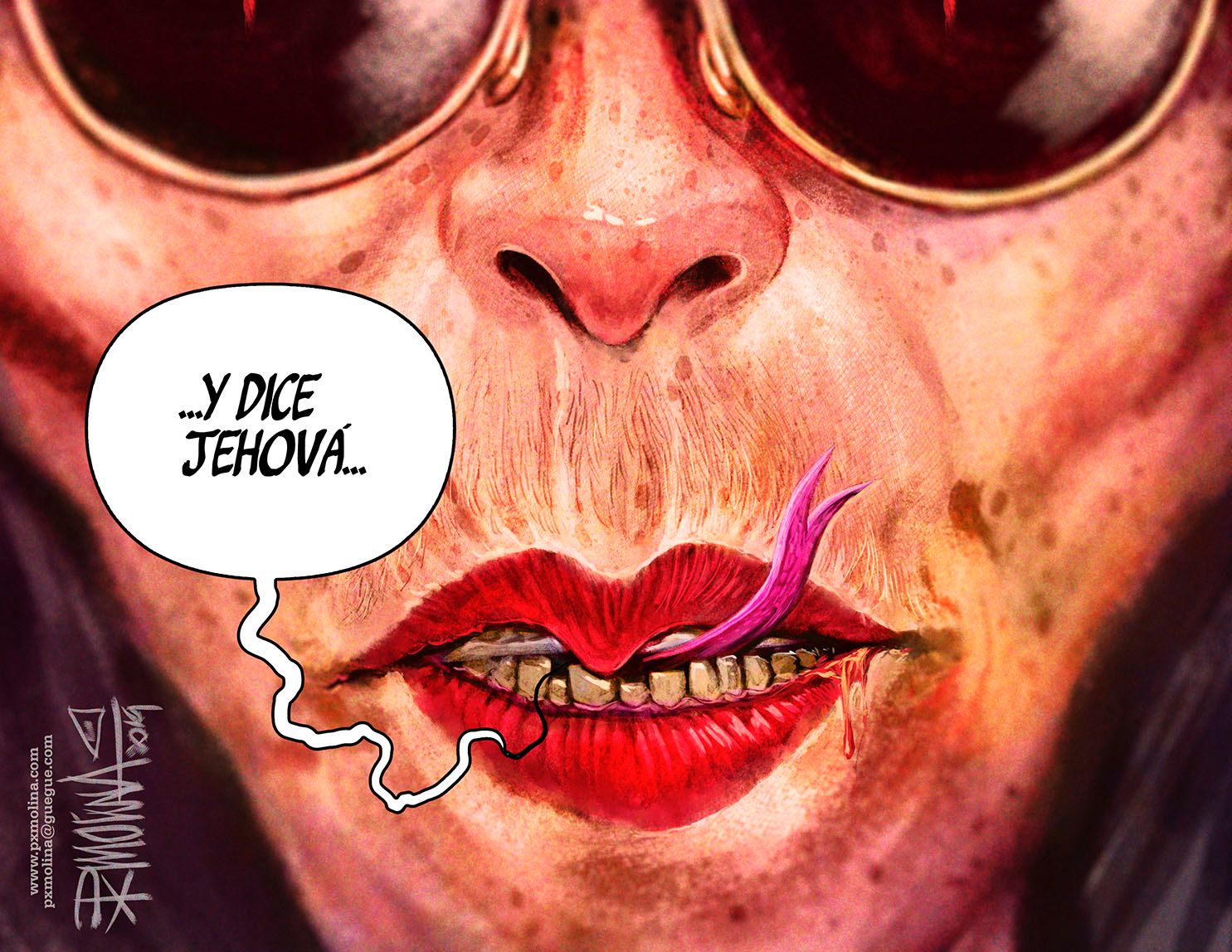27 de agosto 2021

Children of Exile: The Births “Sowing Hope” in the Camp of Nicaraguan Farmers

PUBLICIDAD 1M
PUBLICIDAD 4D
PUBLICIDAD 5D
Chroniclers of the Nicaraguan tragedy use the power of social media to mock the absurdity of power. “Memes are alive, the struggle thrives.”

Chroniclers of the Nicaraguan tragedy use the power of social networks to mock the absurdity of power “Memes are alive
Nicaraguans always make time to laugh. That’s confirmed by the warm acceptance received by the Nicaraguan humorists on the social networks. Users view and celebrate their talents for ridiculing power.
They’re also admired for their rapid ability to create cartoons and memes, both written and visual compositions, that are later shared at top speed. These humorists enrich the political and public debate from the most unexpected angles.
Users by the hundreds view the sketches of Locuin and Juan Carlos Ampie on YouTube. Pedro Molinia (PXMolina) is celebrated for his caricatures in Twitter and Facebook. And the memes created by Mapache Jambado go viral on WhatsApp.
“My thing was always editing videos. I never expected so many other people would catch on,” says Mapache Jambado @mampachejambado. At 21, he’s writing in big letters the history of Nicaraguan political humor, using a format called memes, which were born in the internet era. Beginning with the very presentation of his Twitter page, he ridicules the political culture still tied to the slogans of the 80s. He even dares touch one of the most sacred of these slogans: Sandino vive, la lucha sigue. [“Sandino lives, the struggle continues”], turning it into “Memes live, the struggle continues.”
“Memes are something you post quickly. They’re a social thermometer,” says the creator of memes that have put pixilated glasses on sober figures like Carlos Tunnermann or Monsignor Rolando Alvarez, when they say things like “Respect the Homeland”.
Mapache Jambado’s agile creation of memes has a method: he maintains a juicy and orderly archive he can access when an idea comes to him. “I’m a designer. I try to create quality images. I turn out things that have rhythm, and I guide myself by music. You have to keep the beat, because the videos have a narrative rhythm.”
Mapache’s memes have brought the youth culture into national political humor – their way of poking fun of politics and its personalities, That fertile irreverence is expressed by combining images from the culture of those who’ve been educated more by television, movies, comics and the internet than by newspapers or speeches from the honeyed tongues of the politicians.
Their hero, for example, is no longer the Nicaraguan who takes up arms and becomes a martyr, but someone with more superpowers. His public found it natural to see “the water carriers” – those 16 youth that Ortega threw in jail for bringing water to people protesting – depicted as the Marvel comics “Avengers” heroes. In that meme, Thanos, the god of death, is Daniel Ortega, defeated and transformed into dust that the wind blows away.
Followers of Juan Carlos Ampie have a long wait each week for his ironic comic segment. Each new installment of La Ultima Mirada News [“Last Look News”] debuts on Sundays, during the last 10 minutes of the online television news show “Esta Semana”. Some viewers have asked to have Ampie’s visual jokes appear at the beginning of the news and political analysis program directed by Carlos Fernando Chamorro. However, producers fear these fans would then not view the serious part of the program.
“It’s become a way of observing and understanding the reality in my country, and of putting some perspective on what’s happening,” Ampie explains.
“Humor helps us recall that the powerful are human beings; they’re not extraordinary, and that the vices of greed and corruption are endemic in Nicaragua.” Every new YouTube addition of Ampie’s “news” segment, consistently gets over 90 thousand views.
“Trying to create humor amid the tragedy we’re living through is a big challenge. But there’s a basic fact: creating that space where you can laugh at the rulers regenerates your space of power, grabbing it back from those who want to take it away from you,” reflects Ampie. He adds: “The people in the regime aren’t monsters. Giving them that quality frees them. They’re criminals and they’re ridiculous.”
Locuin becomes serious when I ask him what he believes that people are thinking when they view his wildly successful sketches. “It’s a catharsis for people. The harm they’ve received is very great, but I make the tyrants appear and then ridicule them, so people’s journey feels lighter. Humor helps cure, close wounds, heal the damage a little. And it puts the instinct for vengeance and wrongdoing a little further away.”
Locuin stands for Locos Cuerdas Intencionados, or Intentionally Lucid Crazies. He’s a theatrical powerhouse, who works with an improvised script, sitting in front of the camera and letting it all out. Loquin can impersonate 42 different national figures, including the presidential couple, well known legislators, ministers and political figures from all parties, and even the Apostolic Nuncio.
Born in 1979 in the war zone north of Nicaragua, he comes from a social class where “if you get to eat, you’re the neighborhood success story,” he comments. “More than talent, [I’ve invested] 35 years of dedication. I’ve rehearsed in the bathroom, in the street, impersonating, absorbing the contents of national life in order to adorn my satire. I’ve been the neighborhood mimic. My creations use the language of the streets, that satire and mockery, but also technical language,” Locuin’s creator explains.
His most recent representation of Daniel Ortega is in a sketch called “Talibache Ortegalah”. It was his immediate response to the fall of the Afghan government to the Taliban. His accent and manner of speaking mirrors exactly that of the Nicaraguan president, because Locuin copies his subjects’ mannerisms, physical traits, way of dress, tone, plus the contents of the things they say. The 25-minute videosketch of Ortega is on YouTube and available to a general audience. Loquin has one other unusual trait: he sometimes makes mistakes on the air, acknowledges them, and goes on. That adds self-satire to the general parody.
One of Loquin’s sketches that have had the greatest audience is when he represents Ortega as a talking corpse in a coffin. “It’s not that people are bad, but they have an instinctive need for this all to end,” he clarifies, adding that the same happens when he impersonates Rosario Murillo. “I created a version of Rosario that’s like a cartoon villain. When they see her that way, people are happy, imagining that she’s revealing her true character.”
When the Nicaraguan vice president gets a notion to speak against Nicaraguans, social media users explode with laughter, and the humorists get to work, because she’s just handed them ingredients for satire and humor.
Shortly afterwards, a cartoon appears in Molina’s section of Confidencial: a sewer rat is coming out of Murillo’s mouth, repeating the rulers’ words: “Traitors, sell-outs, straw dummies, criminals, terrorists, servants, malignant snakes, refuse..”

Criticisms of the gap between Ortega and Murillo’s words and their deeds is a favorite topic of Nicaraguan humorists. They take the pulse of the streets – no one believes them. A series of Molina’s cartoons reflect this incongruence. In another drawing a forked-tongue serpent is coming out of Murillo’s mouth while skulls and coffins hang from her earlobes.
Molina draws Murillo and Ortega with sharp measured strokes. That graphic recourse serves to transmit the rulers’ harshness and the piercing harm they’ve caused people.
Molina is a 45-year-old graphic designer who’s now a well-known Nicaraguan humorist. His two brothers were crippled in the 80s war. Molina worked only on paper, until he eventually got involved in the social networks. His cartoons and tweets now dynamize the public debate. “Humor is a vehicle to make people question, to cause discomfort, and also to show people that they’re not alone, that their fury, the sorrow are also shared,” he states from his country of exile.
He sees himself as someone who’s resilient and believes that this quality contributes to public debate. “Resilience, trying to raise spirits.” “Everything is mixed on the social networks – caricature and comments.” He thinks of himself as a social influencer who sells ideas instead of products. In fact, his Twitter page @PxMolina is the scene of authentic and valuable political controversy.
“I’m not content with my role as a public figure on social media,” says Molina. He prefers to assure his space as a creator and have his drawings be the ones to speak. These cartoons have gone around the world, and his trajectory has won him several international awards, among them Columbia University’s Maria Moors Cabot prize.
These aren’t the only Nicaraguan humorists – many others have added their ingenuity and spark to the public debate. Among them are Guillen, Lafito, Chavarria, Cako, and a multitude of spontaneous creators of memes that circulate on the web. Even the regime has one: Rozu, whose fine and elegant lines have been put to the service of the government’s propaganda.
These are the chroniclers of the Nicaraguan tragedy. They train a lens on the absurdity of those who govern and light the spark of reflection and laughter. Thanks to them, we see a tragicomedy, where the powerful only want to submerge us in tragedy. Their contributions shape public debate by reducing in size those who believe themselves to be all-powerful.
This article was originally published in Spanish in Confidencial and translated by Havana Times
Archivado como:
PUBLICIDAD 3M
PUBLICIDAD 3D